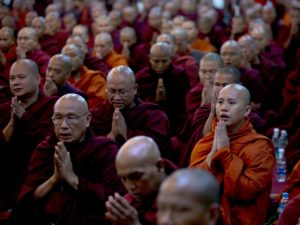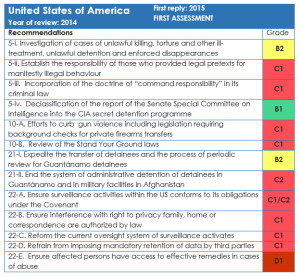Como China colonizó la mitad de Mongolia
El Partido Comunista Chino ha colonizado regiones en Asia que alguna vez pertenecieron a otras culturas como Xin-Jiang donde moran los uigures, y el Tibet donde viven los tibetanos. Pero, conocemos algo sobre la “Mongolia Sureña”?
Mongolia es famosa por la manera en la que se montan los caballos, las yurtas y los canticos guturales. Pero, existe una segunda Mongolia: La Region Autónoma Interior de Mongolia, que es una provincia China, conocida también por reportes de abusos de derechos humanos.
Entonces, parecería que existen dos Mongolias: El pais de Mongolia y la Region Autónoma China de Mongolia Interior, conocida como “Mongolia del Sur”. Pero, cuales son las grandes diferencias entre ambas zonas?
Para comenzar, ambas formaron parte de una gran nación, no existieron dos Mongolias. Esta division comenzó en 1949 cuando la Republica Popular de China anexó a su territorio la zona de “Mongolia del Sur” como “Mongolia Interior”, pero históricamente ambas son parte de una gran nación Mongola.
Segun mapas históricos, bajo la dinastía Qing, que reinó en China entre 1644 a 1911, Mongolia aparece enteramente como parte del imperio chino de ese entonces, sin embargo, para Enghebatu Tochohog, del Centro de Información para Derechos Humanos de Mongolia del Sur, existe discrepancia en dichos documentos y mucha confusion con la terminología empleada para describirlos. Tochohog afirma que la dinastía Qing no era china, sino manchú, siendo entonces una union de gobiernos entre mongoles y manchúes sobre ese vasto territorio.
Para Tochohog, antes de 1644 los manchúes y los mongoles eran vecinos con excelentes y cercanas relaciones, especialmente las zonas del Manchu y Mongolia del Sur. Incluso el fundador de la Dinastia Qing, Nurhachi, se proclamaba a si mismo descendiente del Khan mongol, Themur Khan. Entonces, en el inicio de la Dinastía Qing, los Manchúes se consideraban a si mismos como descendientes legítimos de la nación mongola.
Entonces, China ha sido parte de Mongolia por cientos de años?
Tochohog contesta que sí, ya que China solo fue una provincia mongola durante la existencia del Gran Imperio Mongol. Entonces, China fue parte de Mongolia desde tiempos ancestrales. Ahora, los chinos reclaman que Mongolia y el Tibet fueron parte de China desde hace unos miles de años atrás. Pero eso no es verdad porque Mongolia es una region dividida. Si vemos la historia entre Mongolia y China, existe una gran muralla entre ambos territorios.
La Gran Muralla China es una suerte de frontera sur de lo que hoy es Mongolia Interior?
Tochohog: En realidad la Gran Muralla China es el verdadero limite histórico entre la nación de Mongolia y la Nación China. Incluso no es solo el limite nacional sino el limite entre dos civilizaciones, ya que el norte de la Gran Muralla China es una civilización nómada, la cual es totalmente diferente de la civilización agrícola que existió en el sur. Y no solo eso, es también el límite de dos climas diferentes. Si vemos en clima de la meseta mongola, esta es totalmente diferente del clima existente en China.
Vea mas en: Video: https://youtu.be/3S1pjnPpIdE



